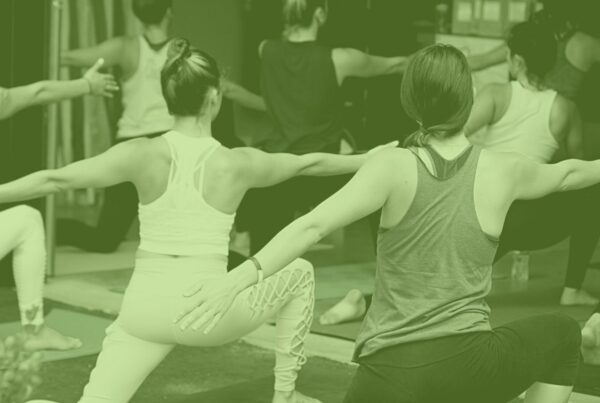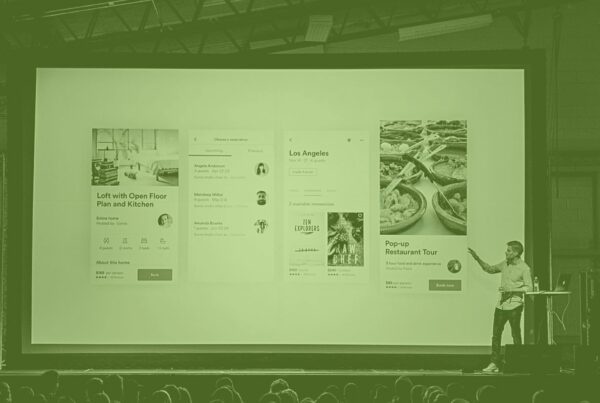Events – be they virtual, hybrid, or in-person – are an integral step in building your online community. And what better way to get some ideas going than by looking at some amazing online community examples with great events?
A great community is centered around content and the members themselves. It hosts virtual events, roundtables, webinars, etc. regularly. While events are limited in duration, the 365 community model stretches out the benefits of in-person events throughout the entire year. Meanwhile, the annual in-person event is the cherry on top. People can engage when they want and however they want – they don’t need to be forced to sit in front of their screens and suffer virtual fatigue.
Event profs are waking up to the perks of the community model, too. One study shows that 44% of association members recognize the increasing importance of an event community. Event platforms are on the same page as they aim to monetize the concept of community; they are offering year-round subscriptions and thus edging closer to becoming fully-fledged community platforms.
But what most of these event platforms are missing are great online community examples or case studies. The reality right now is that most online communities do not live on one designated platform, but are scattered across social media platforms, websites, and podcasts.
Online communities can revolve around a brand, shared interests, learning, support groups, and fan communities. What all of these online community examples have in common is their emphasis on consistently providing valuable content. Now, let’s explore.
Ethereum
Ethereum, one of the world’s most famous blockchains and cryptocurrencies, has its own community. It’s open to everybody who might be interested in their technology, from laypeople to developers. There are several ways for community members to get involved. They can meet fellow Ethereum enthusiasts, become stakeholders, find grants, browse jobs, and last but not least, attend in-person events worldwide.
The Ethereum community lives on various platforms; forums (Reddit, Stack Exchange), chatrooms (Discord has over 18,000 members), social media platforms (YouTube and Twitter), and podcasts.
 RevGenius
RevGenius
The RevGenius community is one of the great online community examples for salespeople, marketers, and revenue professionals. It counts over 24,000 proactive members who network, find job opportunities, and talk about business. Members often post about the value of RevGenius on their LinkedIn profiles, sharing that they landed a new job thanks to the tight-knit community. And best of all: it’s free to join.
The community lives on Slack where they also host roundtables, Q&As, and on-demand content from past events. They also have their own podcast, The Revenue Podcast.
Girls In Marketing
Girls in Marketing is an online community example, dedicated to e-learning for women in marketing. They have a well-defined target audience and deliver value specifically to them.
For £17.99 per month, women in marketing get access to a content library, virtual events, private communication channels, CV templates, and other career-boosting resources. But they’re by no means a fully gated and exclusive community. They host free webinars, offer many free resources, and share various marketing job postings for everybody to see.
Peloton
Peloton is one of those companies that owe most of its success to the community. And they’ve picked up on this exciting trend two years ago already! Peloton is not just a company that sells fitness equipment. They have managed to give their customers a sense of belonging and create a powerful movement. What keeps people motivated and engaged is the amount of user-generated content (UGC) on their website and social platforms as well as having many accountability buddies who are committed to the same goals and values.
But what truly works as a glue in this online community example is the hybrid nature of Peloton’s workouts. Their classes are a great hybrid event example. Attendees might tune into a virtual workout alone, yet feel like a part of a group nonetheless. Additionally, their instructors are accompanied by an in-person audience, doubling down on excitement and engagement.
While strong and incredibly loyal to the brand, the Peloton community, unfortunately, does not live on one designated platform. Instructors send people to Instagram. Their account has 1.8 million followers, while many trainers have become micro-celebrities. In-depth discussions, however, take place on Reddit – r/PelotonCycle has whopping 288k members.
Hubspot
Hubspot‘s online community connects marketers, salespeople, and anybody who uses Hubspot. In fact, a lot of their content revolves around their software solutions. They have a forum, a newsletter, different types of groups, and a gamified leaderboard where community members can keep score.
Additionally, they have virtual webinars, job listings, and the HubSpot User Group where Hubspot can meet and talk. But Hubspot does not gatekeep all of their content for community members only. Their Hubspot Academy is open for anybody, not just community members.
The community all comes together at one of the most glorious in-person conferences, INBOUND.
Moz
Moz is an online community for event marketers. So far, it counts over 500,000 members. Like other communities on this list, they offer exclusive content (their expertise is in SEO and marketing in general) and valuable Q&As. Additionally, their community centers around Moz’s products, such as MozPro and MozBar. For example, members can also get access to MozLab where they can explore new tools, link explorer, and other SEO-related treasures.
Their community is accompanied by a powerful annual in-person event, MozCon, where attendees can get a sense of the community that the brand has built. The community powers the event, and the event drives members to the community – and that’s why Moz is such a great online community example.
Evolve
The Evolve community is one of the most relevant event community examples in this blog post. Why? Because event profs built it FOR event profs. This powerful community of 13,500 is living proof that virtual event platforms also make for outstanding community platforms. Evolve is hosted on Swapcard and it offers everything in one place: networking opportunities, content, invitations to virtual and in-person events, and more.
Sephora
Sephora’s Beauty Insider Community is one of the most organized and prolific online community examples. Each member can fill out a profile and amass followers, much like they would on TikTok or Instagram.
There are many groups within the Sephora community that people can join based on their beauty interests. Groups are further divided into tags, which makes browsing this particular online community easy and organized. This is where they can leave product reviews, seek advice, attend virtual events, or find like-minded individuals. May the numbers speak for themselves; some of the biggest groups have over 480,000 members.
But the main reason we’ve included Sephora’s online community on this list is that they have gone over and beyond with their recent event. They used the EXVO virtual event platform to host an event in the metaverse, called Beautiverse.
Mindvalley
For Mindvalley, community is not an extra perk for fans of the brand; the brand itself is community. To be exact, it’s a community that centers around learning. They offer meditations, on-demand content, and events where like-minded people can meet and learn. Tags allow for easy browsing across several topics. And best of all: their community members are not scattered around the internet – it’s all centered on the platform or the mobile app.
Gainsight
Gainsight is a customer success software with a community that centers mostly around their product, namely news, updates, features, and customer feedback. They have active community managers who keep the community vibrant and organized. Members can follow Gainsight news, engage in discussions in a forum-like format or office hours, and collect points for participation.
They also use the community platform to promote their many smaller virtual events as well as the bigger in-person event. However, it is not clear whether the in-person event uses the same platform and if community members get any ticketing perks.
The Best Online Community Examples Focus On People
In conclusion, here is what all of these successful online community examples have in common, no matter what industry they’re from:
- content is king: they do virtual events/webinars,
- they have a well-defined target audience,
- they allow members to talk to each other.
It’s best if the entire online community gathers on one platform, which is, at this point, still an exception to the rule. Event technology solutions, such as event platforms, can power amazing communities. If you need any help with event strategy, production, or community nurturing, reach out to Endless Events. We’re here to help.










